
VS-Sona Improved Paddy Seeds
65 Per Kilogram
2 Metric Ton (MOQ)
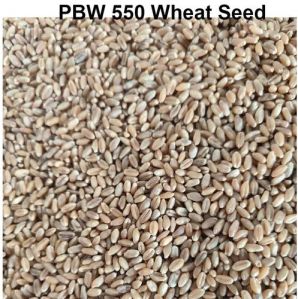
PBW 550 Wheat Seeds
28 - 38 Per Kilogram
120 Quintal (MOQ)
Best Deals from Grain Seeds

Brown Top Millet Seed
25 Per Kilogram
25 Ton (MOQ)
Brown top millet seed is a storehouse of essential nutrients and is very beneficial for our health and well-being. The tiny seeds of brown top millet can provide you with a daily dose of healthy fats, carbs, proteins, and dietary fiber content. Besides, they are also a treasure trove of minerals such as iron, calcium, magnesium, potassium, phosphorous, copper, sodium, manganese, and zinc. Consumption of this nutritious grain on a daily basis can lower the risk of digestive problems, diabetes, and cardiovascular disease, improve bone health, and support weight loss. Shree Nakoda Industries is one of the well-known brown top millet seed suppliers from Gandhinagar (Gujarat). It offers premium quality brown top millet seed. The offered grain is packed using supreme quality packaging material to preserve its freshness for a long time. Get A-1 grade brown top millet seed from Shree Nakoda Industries at a reasonable price.

HPRJ Mix Millet Seeds
Get Price Quote
100 Pack (MOQ)

Wheat Seeds
Get Price Quote
1 Ton (MOQ)

Brown Wheat Seeds
Get Price Quote
10 Kilogram (MOQ)
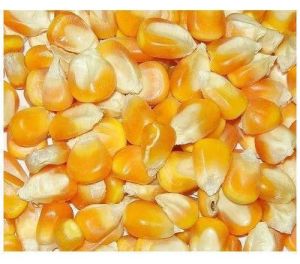
Food Grade Maize Seeds
32 Per Kilogram
3 Ton (MOQ)
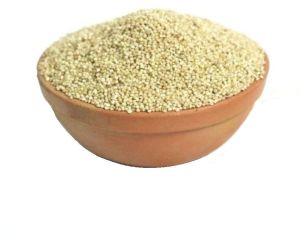
Little Millet
80 - 85 Per Kilogram
20 Kilogram (MOQ)

Maize Seeds
Get Price Quote
500 Kilogram (MOQ)

Proso Millet Seeds
90 - 95 Per Kilogram
5 Ton (MOQ)

Sorghum Millet
50 - 90 Per Kilogram
300 Kilogram (MOQ)
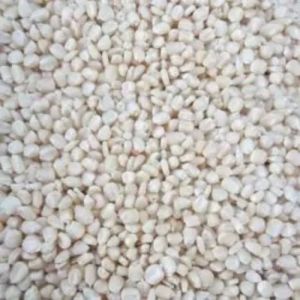
Organic White Maize Seeds
60 - 80 Per Kilogram
10 Ton (MOQ)

Wheat Seeds
Get Price Quote

Green Millet Seeds
40 - 50 Per Kilogram
1 Ton (MOQ)
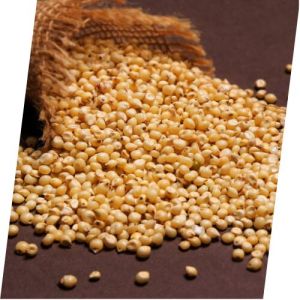
Sorghum Millet
55 - 60 Per Kilogram
1 Ton (MOQ)
Nutritional Profile Sorghum is highly nutritious and offers a range of essential nutrients. It is rich in carbohydrates, dietary fiber, and proteins, making it a valuable source of energy. Sorghum contains significant amounts of minerals such as iron, magnesium, phosphorus, and potassium. It also provides essential vitamins including niacin, riboflavin, thiamine, and vitamin B6. Health Benefits Gluten-free: Like other millets, sorghum is naturally gluten-free, making it suitable for individuals with celiac disease or gluten intolerance. Rich in Antioxidants: Sorghum contains various antioxidants, such as phenolic compounds and flavonoids, which help in reducing oxidative stress and lowering the risk of chronic diseases. High in Fiber: Sorghum is a good source of dietary fiber, which promotes digestive health, prevents constipation, and may reduce the risk of colon cancer. Low Glycemic Index: It has a low glycemic index, meaning it doesn’t cause a rapid spike in blood sugar levels, making it beneficial for managing diabetes and weight control. Culinary Uses Sorghum can be cooked and consumed in various forms, including whole grain, flour, flakes, or popped. It is commonly used to make flatbreads, porridges, couscous, and in soups and stews. Sorghum flour is used in gluten-free baking to make bread, cakes, cookies, and other baked goods. Popped sorghum kernels can be enjoyed as a healthy snack similar to popcorn. Cultivation and Adaptability Sorghum is a versatile crop that can thrive in diverse agro-climatic conditions, from arid and semiarid regions to more temperate climates. It is known for its drought tolerance and ability to grow in poor soils, making it an important crop in regions with limited water availability and soil fertility. Sorghum is relatively resistant to pests and diseases, reducing the need for chemical inputs in cultivation. Its short growing season makes it suitable for intercropping and rotation with other crops, contributing to sustainable farming practices. Cultural Significance Sorghum holds significant cultural importance in many societies, particularly in Africa and parts of Asia, where it has been cultivated for thousands of years. It is often used in traditional ceremonies, rituals, and culinary traditions, symbolizing fertility, abundance, and prosperity. Sorghum-based dishes are an integral part of the culinary heritage of communities in regions where it is cultivated. Economic Importance Sorghum cultivation plays a crucial role in the livelihoods of millions of small-scale farmers worldwide. It serves as a staple food crop, a source of income, and food security, particularly in rural communities.

barley grain
Get Price Quote
100 Kilogram (MOQ)

Psyllium Seed Isabgol Sabut
150 Per Kilogram
1 ton (MOQ)

Finger Millet Seeds
35 - 55 Per Kilogram
500 Kilogram (MOQ)

Maize Seeds
Get Price Quote
100 Kilogram (MOQ)

Wheat Seeds
25 Per Kilogram